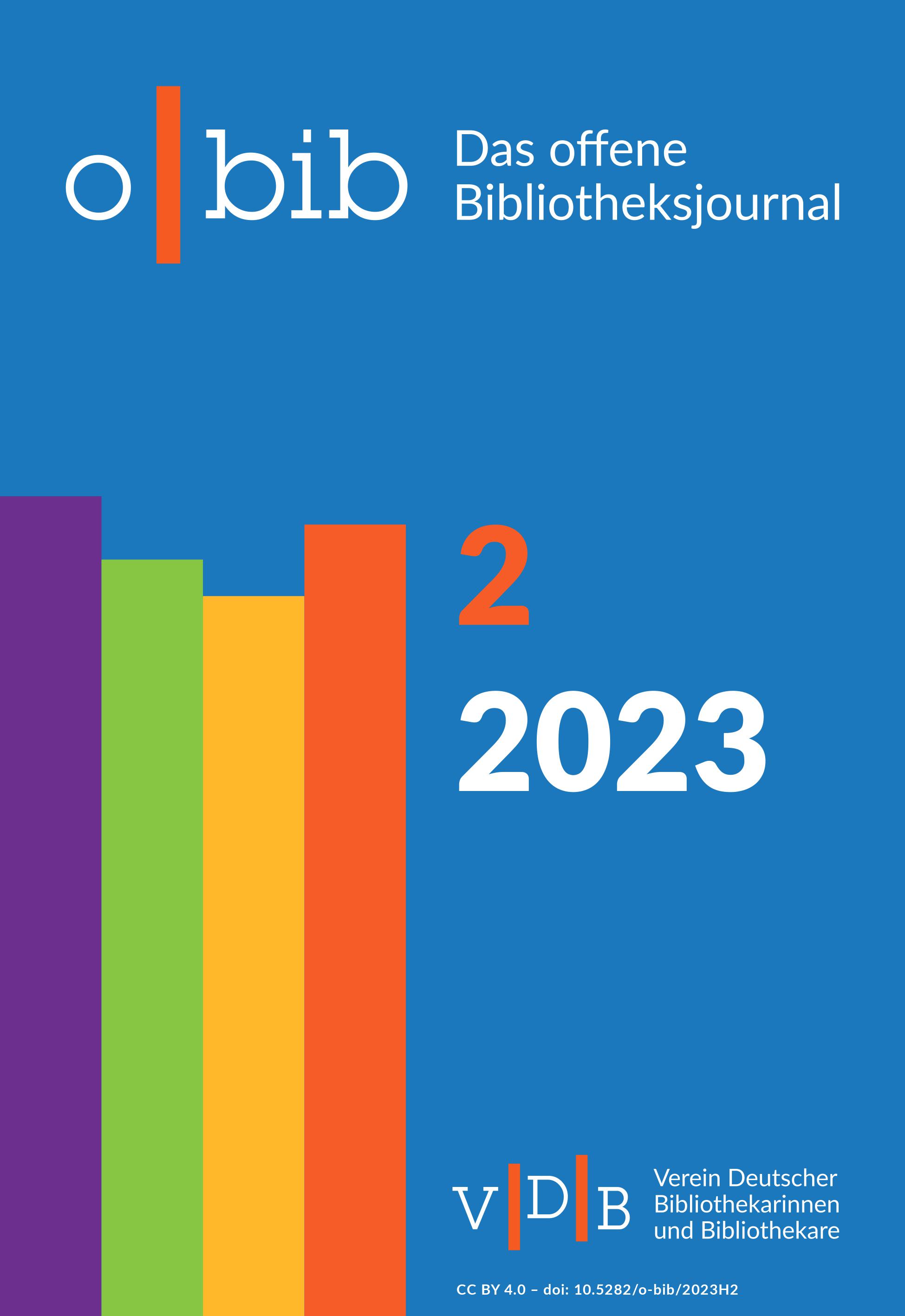Alles unter Kontrolle?
KI im Einsatz im Bildarchiv der ETH-Bibliothek
DOI:
https://doi.org/10.5282/o-bib/5921Keywords:
Image archive, Machine indexing, Subject cataloguing, Descriptive cataloguing, Artificial intelligence (AI), Image recognitionAbstract
With 3.6 million photographs – from the period between 1860 and today, the Image Archive of the ETH Library in Zurich is one of the largest historical image archives in Switzerland. Since 2021, the Image Archive uses artificial intelligence for content-based image indexing, in addition to intellectual indexing, and for the translation of metadata. The results are good. Users benefit from additional research options. The automatically generated tags are closer to everyday language and go into more detail. The Image Archive uses autotagging in a complementary way: It does not replace the intellectual work with the subject headings but complements it. While the computing time is considerable, the financial effort is negligible. In view of the initial processing, which took over 16 months, the question arose as to whether the computational effort required to generate the autotags was worthwhile at all. An online survey provided insights into the acceptance of the autotags on the one hand and the research techniques of the users on the other.
References
Dave Gersghorn: The data that transformed AI research and possibly the world, 26.07.2017, https://qz.com/1034972/the-data-that-changed-the-direction-of-ai-research-and-possibly-the-world, Stand: 31.01.2023.
Englische Wikipedia: Artikel «ImageNet», https://en.wikipedia.org/wiki/ImageNet, Stand: 31.01.2023.
ETH-Bibliothek: Open Data Zielsetzung, https://library.ethz.ch/archivieren-und-digitalisieren/open-data/zielsetzung.html, Stand: 31.01.2023.
Graf, Nicole: Bildersuche in E-Pics Bildarchiv. Online-Umfrage zu Suchstrategien von E-Pics-Nutzenden. Zürich: ETH-Bibliothek, Dezember 2022, https://doi.org/10.3929/ethz-b-000588615.
Graf, Nicole: Crowdsourcing. Die Erschließung des Fotoarchivs der Swissair im Bildarchiv der ETH-Bibliothek, Zürich, in: Rundbrief Fotografie, Vol. 23 (2016), No. 1, S. 24–32.
International Federation of Library Associations: Statement on Libraries and Artificial Intelligence , 17.09.2020, https://www.ifla.org/wp-content/uploads/2019/05/assets/faife/ifla_statement_on_libraries_and_artificial_intelligence.pdf, Stand: 31.01.2023.
Kälin, Adi: Wer kennt die Berge, Orte und Fabriken?, in: Neue Zürcher Zeitung, 18.1.2016, https://www.nzz.ch/zuerich/wer-kennt-die-berge-orte-und-fabriken-1.18678913, Stand: 31.01.2023.
Kantayya, Shalini: Coded Bias vorprogrammierte Diskriminierung (Dokumentarfilm), 2020, https://www.ajl.org/spotlight-documentary-coded-bias, Stand: 31.01.2023.
Meyer, Roland: Gesichtserkennung. Berlin 2021 (Digitale Bildkulturen).
Salian, Isha: Booked for brilliance: Sweden’s National Library turns page to AI to parse centuries of data, 23.01.2023, https://blogs.nvidia.com/blog/2023/01/23/sweden-library-ai-open-source/?ncid=so-twit-236541#cid=gnl_so-twit_en-eu, Stand: 31.01.2023.
Serie «Digital Warriors», Republik, ab 04.01.2022, https://www.republik.ch/2022/01/04/serie-digital-warriors, Stand: 31.01.2023.
Social Media Collective: Critical algorithm studies: a reading list, 2016, https://socialmediacollective.org/reading-lists/critical-algorithm-studies/, Stand: 31.01.2023.
Springer, Michelle et al.: For the common good: The Library of Congress Flickr pilot project, 30.10.2008, https://www.loc.gov/rr/print/flickr_report_final.pdf, Stand: 31.01.2023.
Wolfangel, Eva: Übersetzer DeepL: wirklich besser als Google?, in: Die Zeit, 16.01.2023, https://www.zeit.de/digital/2023-01/deepl-uebersetzer-google-translate-ki/komplettansicht, Stand: 31.01.2023.
Xiang, Chloe: KI ist weder künstlich noch intelligent, 24.01.2023, https://www.vice.com/de/article/wxnaqz/ki-ist-weder-kuenstlich-noch-intelligent, Stand: 31.01.2023.
Downloads
Published
Issue
Section
License
Copyright (c) 2023 Nicole Graf

This work is licensed under a Creative Commons Attribution 4.0 International License.





